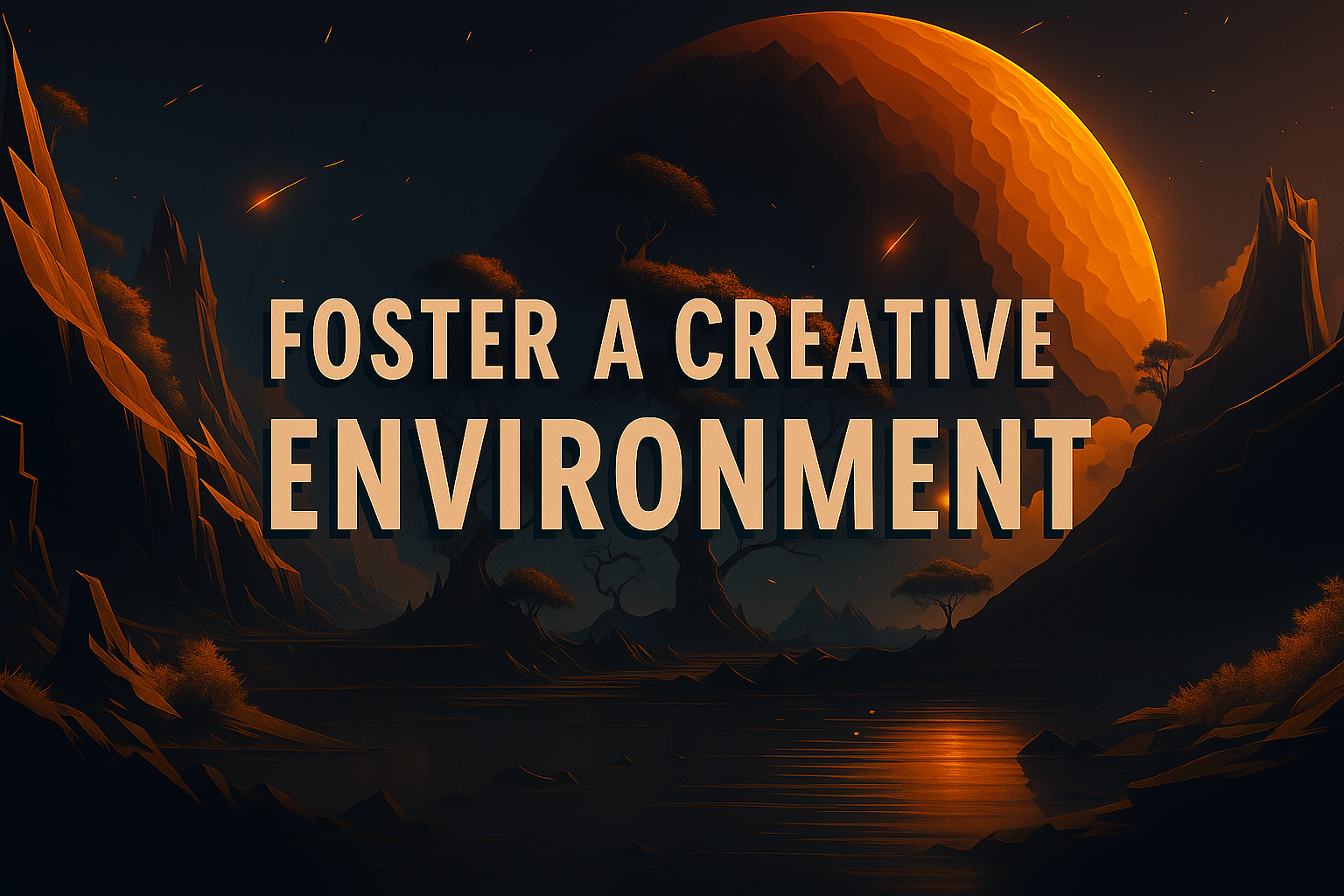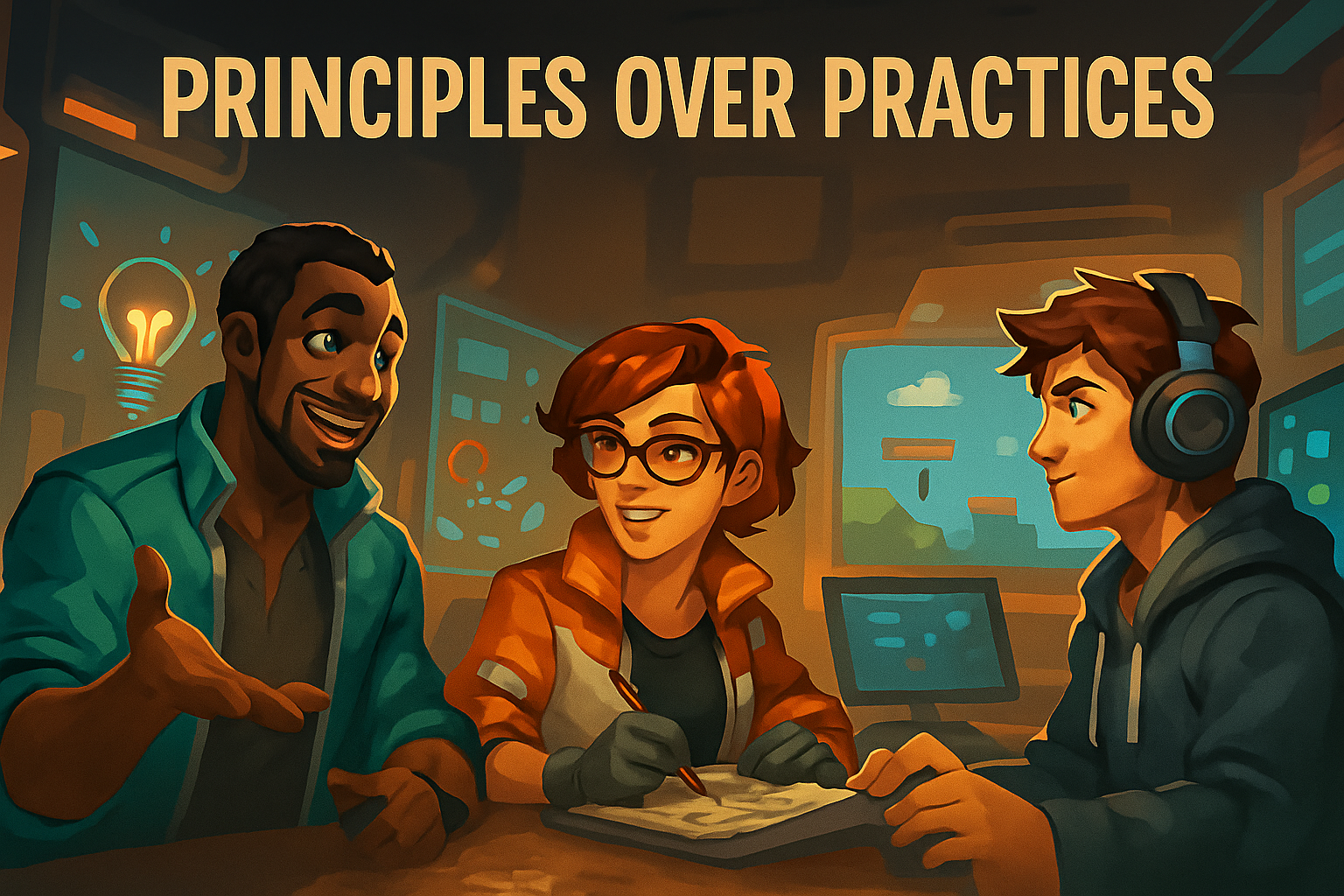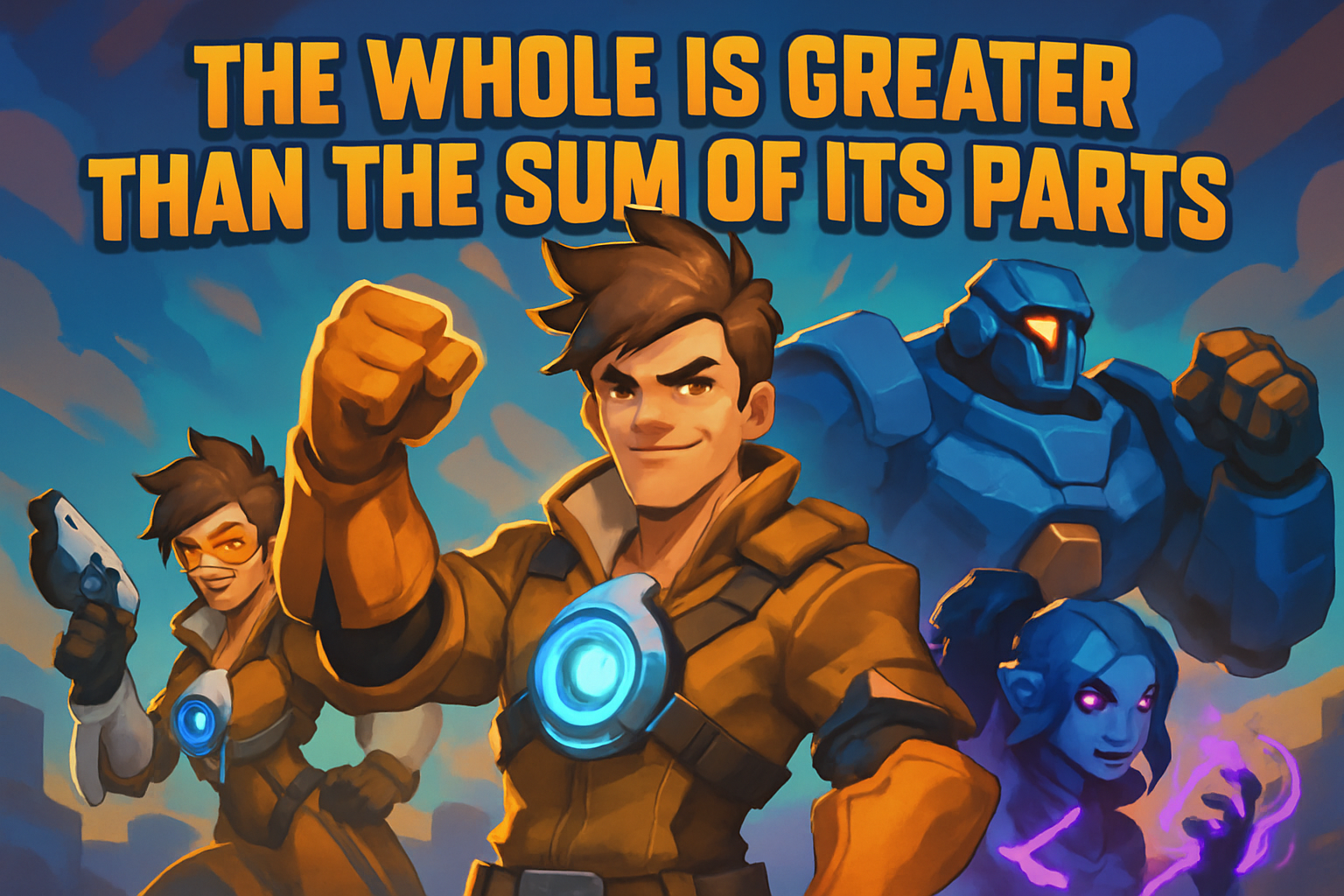Foster a creative environment
When psychological safety and candor coexist, teams flourish. Developers feel safe enough to share ideas, take risks, and learn from failure—while also engaging in open critique that sharpens those ideas into something greater.
Cultivate passion and Professionalism
Game development thrives on passion—but passion alone is not enough. To build great games, we must channel it through professionalism. By fostering environments where enthusiasm is guided by balance, we not only protect the well-being of our developers but also strengthen our ability to create games that truly delight players.
Seek Continuous Improvement
Continuous improvement is not an add-on to game development—it’s the engine that drives us toward excellence. By empowering our teams and embracing a mindset of ongoing evolution, we create not only better processes but also better games that delight our players.
First Quality, then Efficiency
Only once we’re confident that we’ve reached the level of quality our players expect should we turn our focus to efficiency—eliminating waste, streamlining workflows, and refining how we build.
Start simple and allow complexity to evolve
Identify the biggest pain points your team faces right now, and implement the minimum solution needed to address them. This creates a foundation that moves the team forward without unnecessary baggage.
Game First, Without breaking the team
…we must hold two truths together: the game comes first, but not at the expense of the team. Putting the game first means setting aside ego, personal agendas, and individual ambitions when they conflict with what the project truly needs.
Drive by the Player Experience
When we consistently drive by the player experience, we craft games that resonate—games that delight our players.
Know Your Players, and Seek to Delight Them
If you know who your players are and why they play, you can align features, team structure, and creative priorities to deliver an experience that resonates—and delights.
Principles
If we master the principles, we can flexibly adapt our practices to any project or challenge. Without them, practices become rigid prescriptions—useful in one scenario, destructive in another.
Principles over practices
At its core, game development thrives on creativity, collaboration, and iteration. To foster these effectively, we must prioritize the flexible application of principles over the rigid implementation of practices.
Acting on Learnings Over Following a Plan
The real power of planning lies in the process, not the artifact. Planning brings together key stakeholders to develop a shared understanding of what we’re trying to achieve and how we intend to do it. It clarifies intent & constraints, aligns priorities, and sets a strategic direction. This shared understanding is critical—because when we inevitably need to change course, we can do so quickly and confidently, without starting from scratch.
Iteration over documentation
The fun isn’t found in the document. It’s found in the game. And to find it, we must iterate.
Quality over Efficiency
Success in game development comes from prioritizing quality first, and then seeking efficiency. Great games are not built by cutting corners—they’re built by crafting experiences that players will remember.
The player experience as a whole over any of its parts
What matters most is how all parts come together to serve the player experience. A successful game doesn’t highlight its individual components—it dissolves them into an immersive, coherent whole.
Making a great game over financial gain
The long-term financial health and success of a game development enterprise depends on prioritizing the creation of great games that delight players.
Values
When building a game, we inevitably face complex decisions—especially when different priorities are at odds. In these moments, our values act as a compass. By understanding and aligning on what we value most, we can resolve ambiguity faster, collaborate more effectively, and stay focused on what matters: creating a great game for our players.
Before we begin
This is the first post of a series in which I share the game development philosophy I’ve cultivated over the course of my career.


















